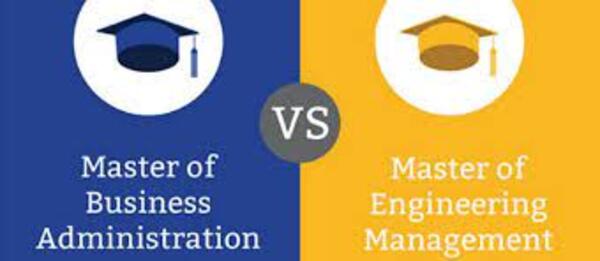If you don’t already have a business undergraduate degree, are you interested in getting an MBA? Our manual demonstrates how to fulfill prerequisites.
Is it possible to earn an MBA without a business degree? It’s a reasonable query given that the Master of Business Administration (MBA) is one of the most well-liked graduate degrees in the country.
No, you are not required to have a business degree in order to pursue an MBA, is the quick response. Whether you have a degree in music, medicine, law, psychology, political science, engineering, or any other area of the liberal arts, a master’s in business administration can help you reach your professional objectives.
You can breathe a sigh of relief now that you know it is possible to obtain an MBA. You only need to be aware of a select few crucial details in order to be accepted.
Can I Get An MBA Without a Business Degree?
Yes, you can pursue an MBA without having a business degree. The majority of business schools accept MBA candidates with backgrounds outside of business. Less importance is placed on your prior education by schools than on your skills, professionalism, and drive.
MBA programs provide practical career preparation by emphasizing practical skills over theoretical knowledge. Although having business experience may benefit your application, you do not need a background in business to obtain an MBA.
Related: MBA In Nursing: Why Nurses Should Get an MBA?
You can apply to an MBA program to acquire the skills necessary to change or advance your career as long as you have a bachelor’s degree from an accredited university.

School requirements for MBA applicants who are not in the business world may still exist. Standardized test scores, post-baccalaureate or prerequisite coursework, skill evaluations, and other factors are typical selection criteria. Additionally, some programs call for at least a year of work experience in a business-related field.
Data from Earnest shows that 48% of an average MBA class is made up of specialized and general business majors. However, only 10% of MBA students are majoring in science or engineering, while 24% of graduates hold degrees in the liberal arts.
Will I Be Out of Place as a Non-business Major?
U.S. researchers conducted a study that claims that Compared to other graduate programs, the Department of Education’s Master of Business Administration programs have the most diverse student bodies. Given the broad range of business specialties and disciplines found in both for-profit and nonprofit organizations, this makes sense.
In fact, more than half of all accepted MBA students lack a business undergraduate degree. Some of them majored in scientific or technical fields, like engineering, while others have degrees in the liberal arts. They all share a love of business and a willingness to put in the time for a rigorous study period, which makes them strong candidates.
A technical degree gives its holders a foundation in calculus and statistics, whereas a liberal arts major might have greater insight into domestic and global cultural issues, which is important for businesses operating in a global economy. It is rare for someone to enter an MBA program with the skill set to excel in every area.
It’s common for people to pursue an MBA without first earning a business undergraduate degree. If your background is not in business, you won’t feel out of place. In fact, it’s likely that many of your classmates are beginning from the same point as you.
Will I Be Disadvantaged If I Don’t Have a Business Degree?

No, but picking the best program is important. Non-business majors typically gravitate toward programs that emphasize leadership, critical thinking, and ethics. When a team project involving other majors is assigned in those programs, it’s not unusual for the accounting major to approach the liberal arts major.
On the other hand, the accounting major can pay it forward in the Managerial Accounting course.
Non-business majors contribute just as much to the classroom experience as business majors do over the course of the entire program; they bring a distinctive viewpoint and have a tendency to approach issues from a different angle.
You gain from your classmates’ experiences by selecting a school with a diverse student body. The best way to determine if the program is ideal for you is to take part in a classroom discussion firsthand. The ability to attend class as a guest is offered by many programs. While attending a class visit, try to identify the English or Finance majors.
Do You Meet the Prerequisite Criteria for An MBA Program?
To ascertain whether an applicant is eligible for admission, each school establishes its own unique criteria. Any applicant looking to enroll in an MBA program at the upper level should be aware that there are certain prerequisite requirements.
You may need to take additional courses before you can enroll in the advanced business program, for example, depending on your school and prior area of study.
A sufficient GMAT score is additionally a typical prerequisite for a Master of Business Administration. The Graduate Management Admission Test, or GMAT, is a general indicator of your readiness for a master’s-level business program. The strongest pillar of an MBA application is frequently this one.
Is An MBA the Best Route to Achieve Your Career Goals?

A key step in many career paths may be obtaining an MBA. It can be crucial, in particular, for people who want to advance into management or upper management after working in the sciences or technology.
But not everyone will find it to be the best option. It’s crucial that you consider your ultimate goal or goals first. Are you able to accomplish those goals with a Master of Business Administration? Some people will find that getting a graduate degree in their field is the better choice.
For others, earning a business bachelor’s degree, enrolling in a MicroMaster’s program, or taking online courses that lead to certifications may be advantageous.
Start your decision-making process by conducting research to determine which is best for your future. Look into potential jobs you’re interested in. Additionally, find out what qualifications they demand. What qualifications, licenses, and other accomplishments do they possess?
Additionally, you should research the requirements for any potential future careers. Do they request a specific degree, such as an MBA? In addition, did the person who was hired previously have one even if it wasn’t listed as a requirement? Even if it isn’t advertised, it might be preferred!
Obtaining a Master’s in Business Administration is a great way to accomplish your professional objectives, advance your career, or even change careers. But don’t rush into it. Depending on how you approach it and how much time you have to attend classes, it may take several years to complete.
Conclusion: Get An MBA Without a Business Degree
If your undergraduate degree wasn’t in business, don’t let that stop you from applying to MBA programs. Your business major classmates will quickly catch up to you thanks to the prerequisite modules, and everyone will benefit from your unique background.
Despite the fact that an MBA is a business degree, those who have a bachelor’s degree in a field other than business may not necessarily find it more difficult to succeed.
FAQs
What is Executive MBA?
An executive MBA program, also known as an EMBA program, is designed for students who are further along in their careers and want to continue working full-time while in school. The majority of programs offer part-time options like weekend classes, though schedules for each program vary. See Executive MBA Vs Regular MBA.
What Are the Requirements for MBA in the USA?
MBA admission requirements in the USA:
- a bachelor’s degree earned from a reputable college or university.
- GMAT score, or Graduate Management Admission Test.
- a test of English language proficiency, such as the TOEFL or IELTS.
- Resume (CV)
- Statement of Purpose.
- 2 Letters of recommendation.







